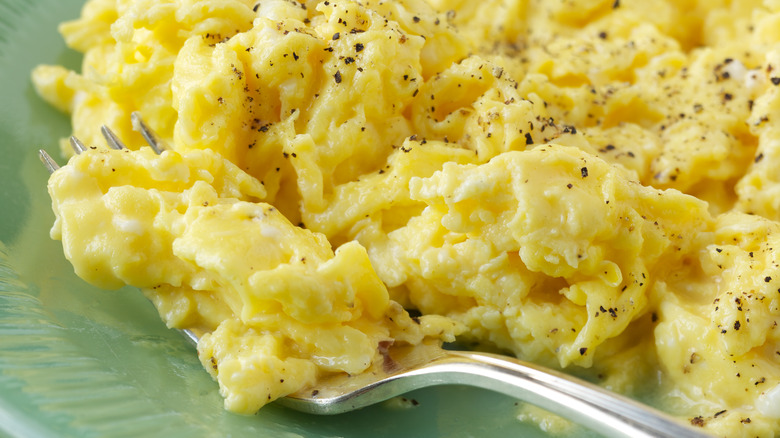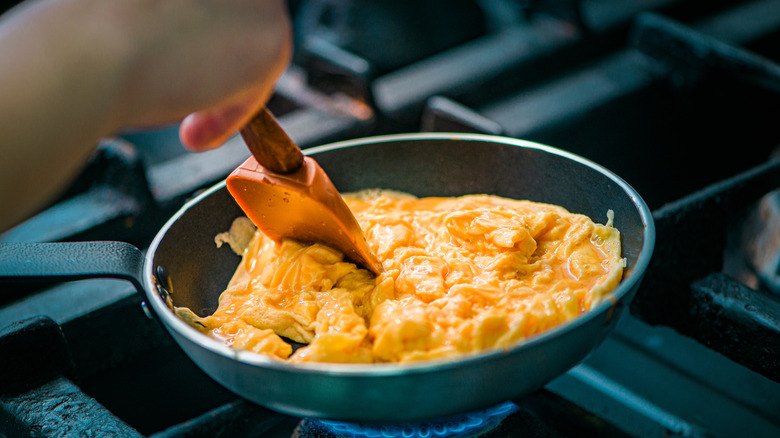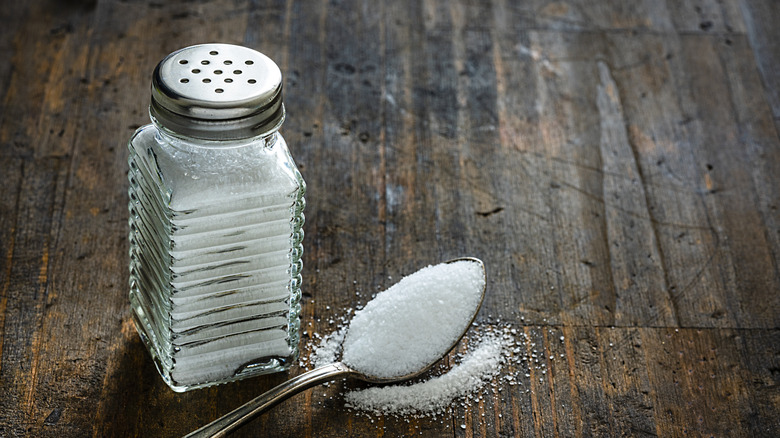How Salt Can Fix Your Rubbery Egg Woes
Adding salt to your food as it cooks is an excellent way to add flavor to your dishes. One of the reasons salt tastes so good is because it decreases the water activity in the food, and this helps bring out the flavor in the food. It can even make your food smell better, and a lot of the flavor in food comes from its smell.
Salt isn't just for flavor, though. When it comes to the best scrambled eggs, salt can actually prevent them from becoming rubbery as they cook. As you're standing at your stove stirring and fluffing your scrambled eggs, the eggs themselves are undergoing a very interesting process. The combination of proteins in the egg white and moisture trapped between protein bonds is what causes eggs to firm up. When you add salt to the mixture, you can help these bonds form just right so that they're not too tight and your eggs don't get too rubbery.
How eggs cook: a deep dive into the science
Eggs solidify when they cook thanks to the proteins in the egg white, which are long-chain amino acids. Before you cook the egg, these proteins are curled up into a ball, and the bonds between the amino acids are pretty weak. Once the egg begins to cook, the heat causes the bonds to break. After they break, they then form bonds with other proteins. In the process, water gets trapped between the bonds, and the egg begins to firm up. This joining and firming of bonds is also what makes egg whites turn white while they cook.
To have nice, fluffy, soft, eggs, you want those bonds to form with water trapped inside. If you cook the eggs too long or let them get too hot, however, too many bonds begin to form too tightly. When this happens, water gets squeezed out, and the eggs begin to get rubbery.
A simple way to fix this problem is with salt. The salt can add a buffer in your eggs that prevents the bonds from being formed too tightly. This stops the water from being squeezed out, thus avoiding the rubbery texture.
How to salt eggs to prevent them from getting rubbery
Because the salt provides a buffer in the amino acid bonds during the cooking process, you'll want to salt your eggs at the beginning. You can also then salt your eggs toward the end if you want to add more flavor. Take caution not to over-salt your eggs, however, especially if you're only making a few eggs. If you're using salted butter when you cook your eggs, remember that some salt is being added via the butter as well; it typically contains about ¼ teaspoon of salt per half-cup stick.
Many scrambled egg recipes simply list "salt" as an ingredient without a set amount, so it can be difficult to know how much salt to use. A few famous chefs have listed specific salt amounts in their scrambled egg recipes. Ina Garten recommends one teaspoon of salt for eight eggs, Alton Brown recommends one pinch of salt for three eggs, and Paul Hollywood recommends one pinch of salt for two eggs. If you're making a few eggs, try adding a pinch of salt before you begin cooking, then you can add more when the eggs are done if you prefer.


